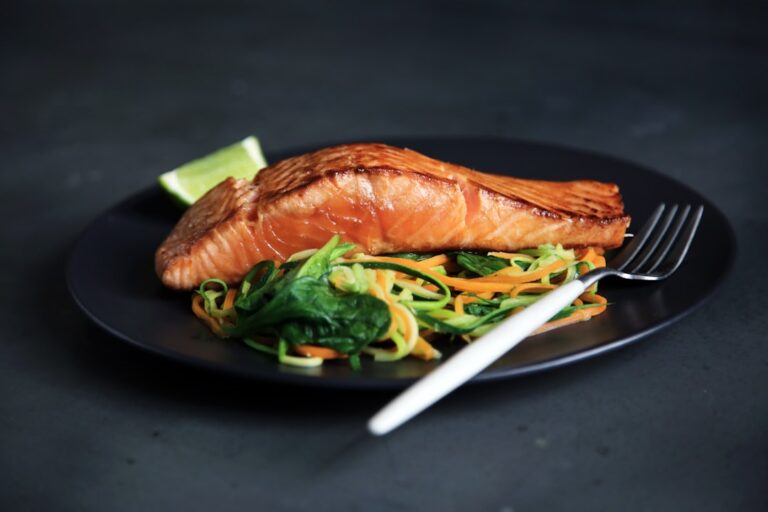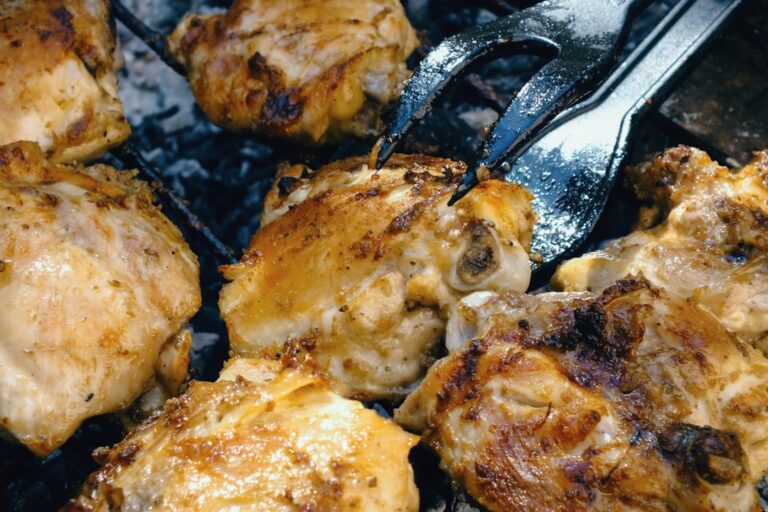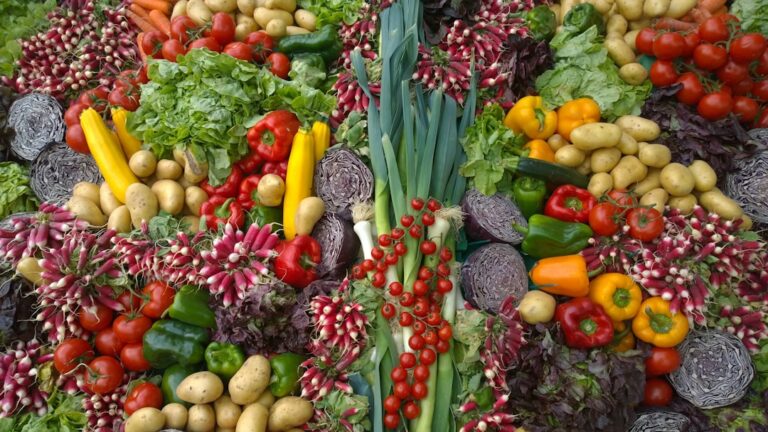The Best Weight Loss Foods to Add to Your Diet

When it comes to weight loss, the foods you eat play a crucial role in determining your success. Incorporating the right foods into your diet can help you shed unwanted pounds and improve your overall health. Weight loss foods are typically low in calories, high in nutrients, and can help keep you feeling full and satisfied. In this article, we will explore some of the best foods to include in your weight loss journey, including lean protein sources, fiber-rich foods, healthy fats, and low-calorie, nutrient-dense options. We will also discuss foods to avoid when trying to lose weight and provide tips for incorporating these weight loss foods into your diet.
Key Takeaways
- Introduction to Weight Loss Foods:
- Weight loss foods are nutrient-dense, low-calorie options that can aid in achieving weight loss goals.
- Lean Protein Sources for Weight Loss:
- Lean protein sources such as chicken, turkey, and fish can help promote satiety and support muscle growth during weight loss.
- Fiber-Rich Foods for Weight Loss:
- Fiber-rich foods like fruits, vegetables, and whole grains can aid in digestion, promote fullness, and regulate blood sugar levels.
- Healthy Fats to Aid in Weight Loss:
- Healthy fats from sources like avocados, nuts, and olive oil can support heart health and help with nutrient absorption.
- Low-Calorie, Nutrient-Dense Foods for Weight Loss:
- Foods like leafy greens, berries, and legumes provide essential nutrients while keeping calorie intake in check.
- Foods to Avoid for Weight Loss:
- Processed foods, sugary snacks, and high-fat, high-calorie items should be limited or avoided when trying to lose weight.
- Conclusion and Tips for Incorporating Weight Loss Foods into Your Diet:
- Incorporate a variety of weight loss foods into your meals, practice portion control, and stay mindful of overall calorie intake to support your weight loss journey.
Lean Protein Sources for Weight Loss
Protein is an essential nutrient for weight loss as it helps to promote feelings of fullness and satisfaction, which can prevent overeating. Lean protein sources are also beneficial for building and maintaining muscle mass, which can help boost metabolism and aid in weight loss. Some excellent options for lean protein include chicken breast, turkey, fish, tofu, and legumes such as lentils and chickpeas. These foods are not only low in calories but also high in protein, making them an ideal choice for those looking to shed pounds. Additionally, incorporating lean protein into your meals can help stabilize blood sugar levels and reduce cravings for unhealthy snacks. By including lean protein sources in your diet, you can support your weight loss efforts and improve your overall health.
Incorporating lean protein sources into your diet can be as simple as adding grilled chicken breast to a salad or enjoying a piece of baked fish with steamed vegetables for dinner. You can also experiment with plant-based protein options such as tofu or tempeh in stir-fries or salads. By including a source of lean protein in each meal, you can help control your appetite and support your weight loss goals.
Fiber-Rich Foods for Weight Loss
Fiber is another important component of a weight loss diet as it can help promote feelings of fullness and aid in digestion. Foods that are high in fiber are typically low in calories and can help keep you feeling satisfied between meals. Some excellent sources of fiber include fruits, vegetables, whole grains, legumes, and nuts and seeds. These foods not only provide essential nutrients but also help regulate blood sugar levels and support a healthy digestive system. By incorporating fiber-rich foods into your diet, you can support your weight loss efforts and improve your overall well-being.
Adding more fiber to your diet can be as simple as starting your day with a bowl of oatmeal topped with fresh berries or enjoying a colorful salad filled with a variety of vegetables for lunch. Snacking on raw vegetables with hummus or enjoying a piece of fruit with a handful of nuts can also help increase your fiber intake throughout the day. By including a variety of fiber-rich foods in your meals and snacks, you can help control your appetite and support your weight loss journey.
Healthy Fats to Aid in Weight Loss
While it may seem counterintuitive, incorporating healthy fats into your diet can actually support weight loss. Healthy fats such as avocados, nuts, seeds, and olive oil can help promote feelings of fullness and satisfaction, which can prevent overeating. These fats are also important for supporting overall health, including heart health and brain function. Additionally, including healthy fats in your meals can help enhance the flavor and texture of your food, making it more enjoyable and satisfying. By incorporating healthy fats into your diet, you can support your weight loss efforts while enjoying delicious and nutritious meals.
Adding healthy fats to your meals can be as simple as drizzling olive oil over a salad, adding avocado to a sandwich or wrap, or enjoying a handful of nuts as a snack. You can also incorporate seeds such as chia seeds or flaxseeds into smoothies or yogurt for an added boost of healthy fats. By including a source of healthy fats in each meal, you can help control your appetite and support your weight loss goals.
Low-Calorie, Nutrient-Dense Foods for Weight Loss
In addition to lean protein sources, fiber-rich foods, and healthy fats, there are many low-calorie, nutrient-dense options that can support weight loss. These foods are typically high in essential nutrients such as vitamins, minerals, and antioxidants while being low in calories. Some examples of low-calorie, nutrient-dense foods include leafy greens, cruciferous vegetables such as broccoli and Brussels sprouts, berries, and citrus fruits. These foods not only provide essential nutrients but also help keep you feeling full and satisfied without adding excess calories to your diet. By incorporating these low-calorie, nutrient-dense options into your meals and snacks, you can support your weight loss efforts while nourishing your body with essential nutrients.
Including low-calorie, nutrient-dense foods in your diet can be as simple as starting your meal with a salad filled with leafy greens and colorful vegetables or enjoying a piece of fruit as a snack. You can also experiment with different cooking methods such as steaming or roasting to enhance the flavor and texture of these nutrient-dense foods. By including a variety of low-calorie, nutrient-dense options in your diet, you can support your weight loss goals while nourishing your body with essential nutrients.
Foods to Avoid for Weight Loss

While there are many foods that can support weight loss, there are also some that should be limited or avoided when trying to shed pounds. These include highly processed foods that are high in added sugars, unhealthy fats, and empty calories. Examples of these foods include sugary snacks and beverages, fried foods, fast food, and processed snacks such as chips and cookies. These foods not only provide little nutritional value but can also contribute to weight gain and other health issues when consumed in excess. By limiting these unhealthy options in your diet and focusing on whole, nutrient-dense foods instead, you can support your weight loss efforts and improve your overall health.
When trying to lose weight, it’s important to be mindful of portion sizes and to limit the consumption of foods that are high in added sugars and unhealthy fats. Instead of reaching for processed snacks or sugary beverages, opt for whole foods such as fruits, vegetables, lean proteins, and healthy fats. By making these simple swaps and being mindful of the foods you consume, you can support your weight loss goals and improve your overall well-being.
Conclusion and Tips for Incorporating Weight Loss Foods into Your Diet
Incorporating weight loss foods into your diet can be a simple and delicious way to support your weight loss goals while nourishing your body with essential nutrients. By including lean protein sources such as chicken breast, fish, tofu, and legumes, fiber-rich foods like fruits, vegetables, whole grains, legumes, nuts, and seeds, healthy fats such as avocados, nuts, seeds, and olive oil, and low-calorie, nutrient-dense options like leafy greens, cruciferous vegetables, berries, and citrus fruits into your meals and snacks, you can support your weight loss efforts while enjoying delicious and satisfying food.
In addition to incorporating these weight loss foods into your diet, it’s important to be mindful of portion sizes and to limit the consumption of highly processed foods that are high in added sugars and unhealthy fats. By making these simple changes to your diet and being mindful of the foods you consume, you can support your weight loss goals while improving your overall health.
When it comes to incorporating weight loss foods into your diet, it’s important to focus on variety and balance. Experiment with different recipes and cooking methods to keep meals interesting and enjoyable. Additionally, be mindful of portion sizes and listen to your body’s hunger and fullness cues to prevent overeating. By making these simple changes to your diet and being mindful of the foods you consume, you can support your weight loss goals while nourishing your body with essential nutrients.
Looking to improve your health and wellness? Check out our article on the best weight loss foods to add to your diet. In addition, if you’re interested in staying informed about the latest economic trends, be sure to read our related article on U.S. markets falling amid worries about a slowing global economy. And for more life hacks and tips for creating a comfortable home environment, visit our article on life hacks for home. Lastly, if you’re an entrepreneur looking to optimize your e-commerce business, don’t miss our comprehensive ecom checklist for success.
FAQs
What are the best weight loss foods to add to your diet?
Some of the best weight loss foods to add to your diet include lean proteins such as chicken, fish, and tofu, as well as high-fiber foods like fruits, vegetables, and whole grains. Healthy fats from sources like avocados, nuts, and olive oil can also support weight loss.
How do these weight loss foods help with losing weight?
These weight loss foods help with losing weight by providing essential nutrients, promoting feelings of fullness, and supporting a healthy metabolism. Lean proteins and high-fiber foods can help control appetite and reduce overall calorie intake, while healthy fats can provide satiety and support overall health.
Are there specific weight loss foods that can boost metabolism?
Certain weight loss foods, such as green tea, chili peppers, and lean proteins, have been shown to have a modest impact on boosting metabolism. However, it’s important to note that the overall impact of these foods on metabolism is relatively small and should be combined with a balanced diet and regular physical activity for best results.
Can adding weight loss foods to your diet help with long-term weight management?
Adding weight loss foods to your diet can certainly support long-term weight management. By incorporating a variety of nutrient-dense foods, individuals can establish healthy eating habits that can be sustained over time. Additionally, these foods can help prevent feelings of deprivation and support overall well-being.
What are some examples of weight loss foods that are easy to incorporate into meals?
Examples of weight loss foods that are easy to incorporate into meals include leafy greens like spinach and kale, berries such as blueberries and strawberries, and lean proteins like grilled chicken or baked fish. Additionally, whole grains like quinoa and brown rice, as well as healthy fats like avocado and nuts, can be easily added to meals for a weight loss-friendly boost.



